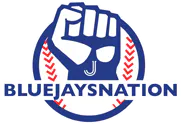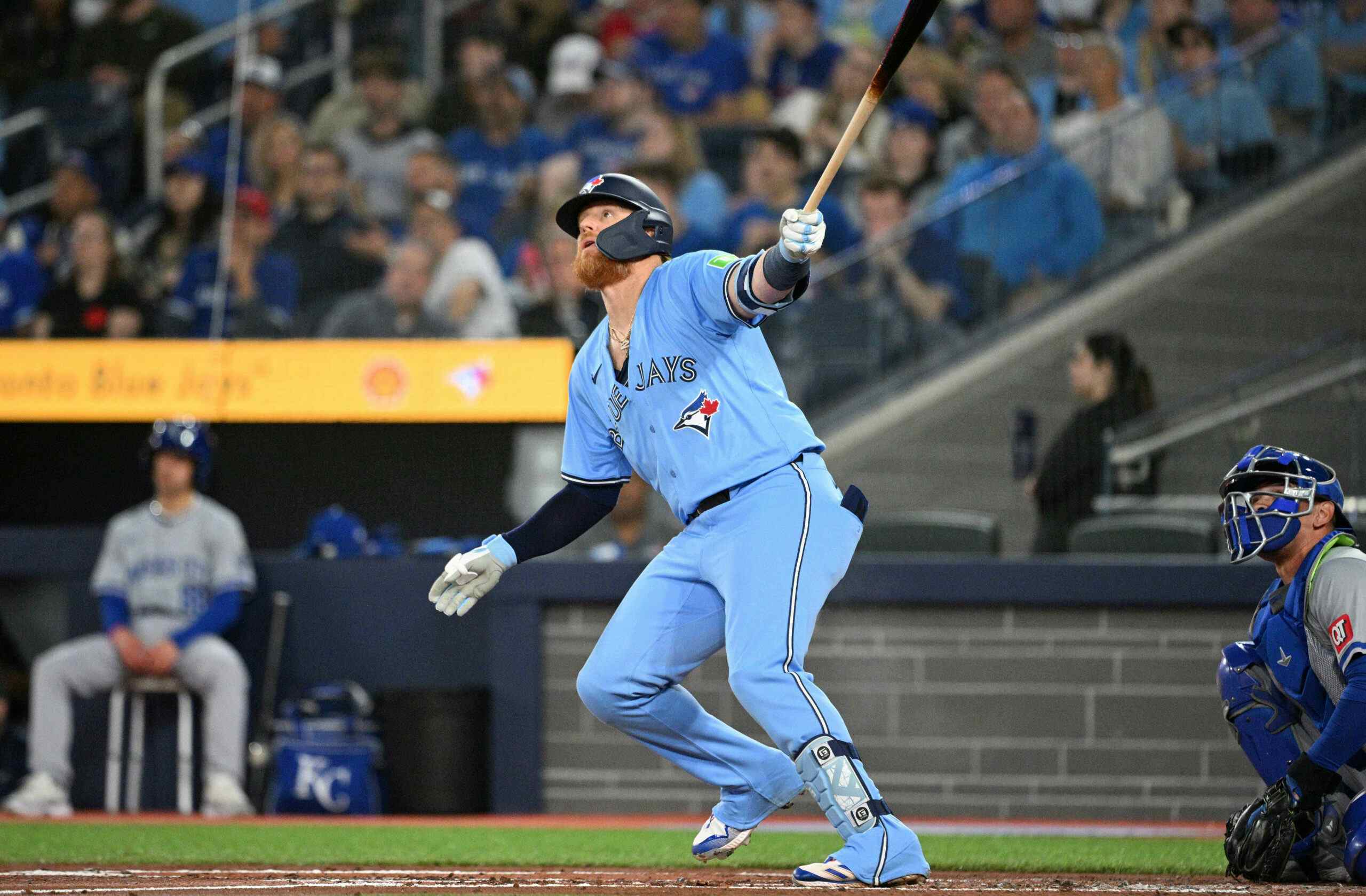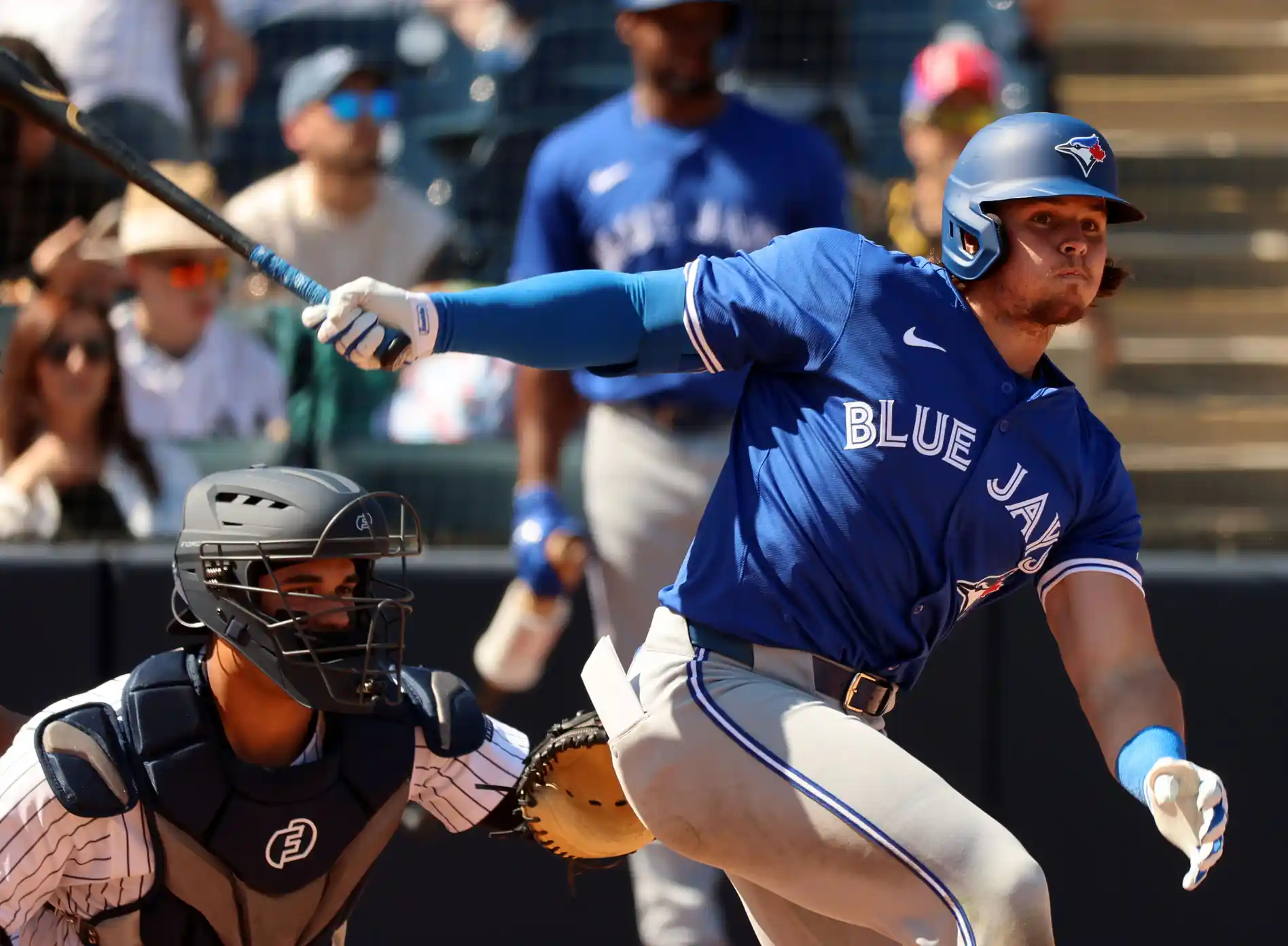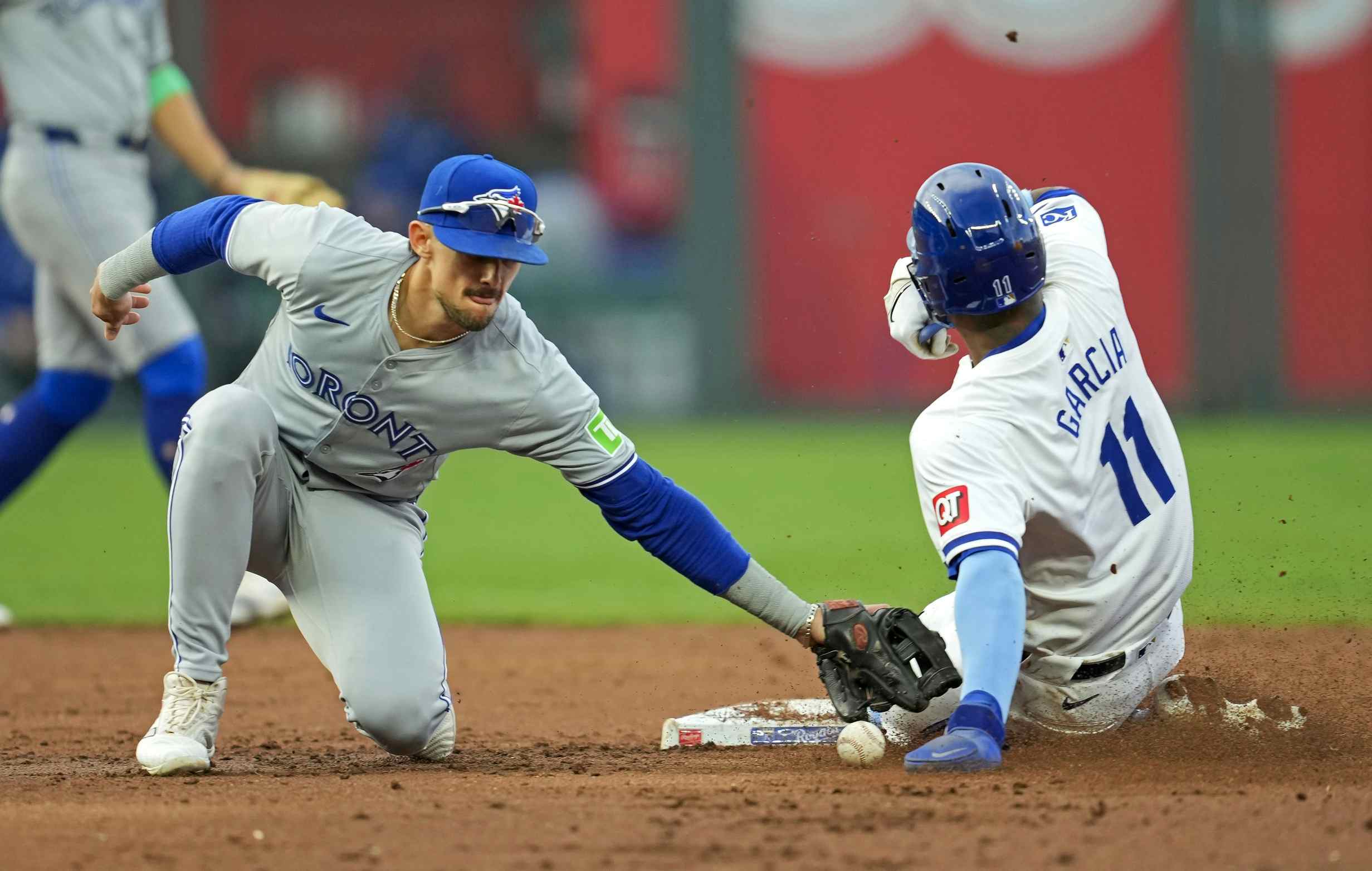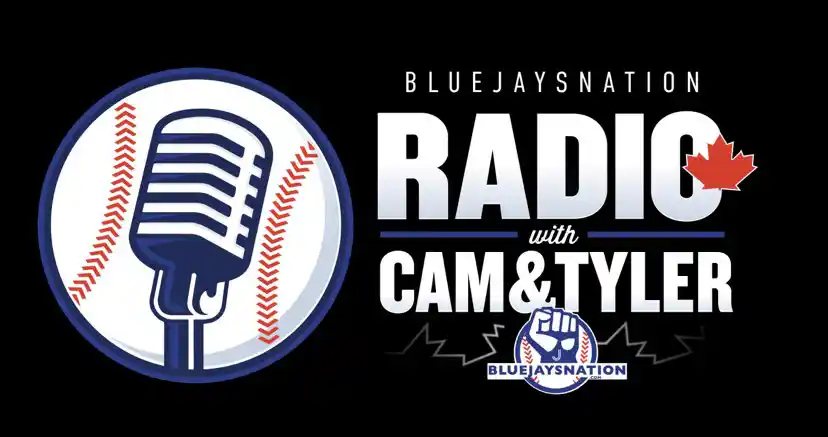Shapiro Speaks!: On the (increasing) budget, the trade deadline, and more!

Photo credit: Dan Hamilton-USA TODAY Sports
“Are you over budget? Did you have to go to Rogers to get more money?” asked Prime Time Sports host Bob McCown of Mark Shapiro on Tuesday, nearly twenty minutes into a conversation that had already been full of insight into the inner workings at 1 Blue Jays Way, but was about to become even more so.
“Well, again, we’re not over budget, but yes,” Shapiro admitted. “We went — we had a meeting with all the main players at Rogers that oversee our business; Rick Brace, from the CEO level, to Edward Rogers, all the different people that are engaged. We had a long conversation, both about our revenue — which is obviously a piece of it, because it is a business — as well as the opportunity that exists here. And without quantifying it, I think everybody was extremely supportive of doing what it takes to maximize the window. And when I say ‘supportive,’ it wasn’t just moral support, like a slap on the butt and a clap, it was, ‘here are the financial resources, do what you need to do.’ I think that was clear in what we did over the deadline period, starting with B.J. Upton, and moving forward, and that will remain clear because we still have some flexibility as we go through August, should the opportunity present itself.”
There is a whole lot going on in that statement, but what I think is most important in it — even more so than the suggestion of actual financial resources themselves — is the way it portrays the dynamic between club president and his bosses. Apart from being notably less guarded, it’s maybe not so different from the kind of stuff that we heard from the previous regime, but to me it underlines the fact that Shapiro is someone who speaks the language of of that world. Or, perhaps more importantly, can impress a room full of legacy executives with his eminently sensible newspeak.
Granted, that’s probably easier because he’s still in his honeymoon period with the company, and he’s inherited a good situation, in terms of revenue, from his predecessors — albeit one that wasn’t as efficient in that department as it should have been, which he quickly looked to change, instituting dynamic ticket pricing and discontinuing the Ballpark Pass. But if we believe increased resources have always available if the club is able to make the business case for them, which club president do you think stood a better chance of making that case?
At times over the years it was reported that the relationship between Beeston and ownership was acrimonious, as became obvious when ownership went looking for his replacement behind his back. Whether that was fair or not, and no matter who you want to blame for it, there is no denying that the organization is better off when the relationship between front office and ownership is good — when ownership believes in the front office, and when the front office understands how to show ownership why what they want to do will work. Even if that means investing more of the revenue the team is generating for the company back into the on-field product.
A lot of fans have been misguidedly afraid that Shapiro was brought in precisely to run the club on the cheap, as he did for years in Cleveland — a narrative too often perpetuated in the media, such as in this Toronto Star piece from Richard Griffin that refers to him as “the frugal one” — but so far that has yet to be the case, and as Shapiro notes, more flexing of the club’s financial muscle is likely still to come.
And why the hell shouldn’t it be?
Elsewhere in the interview — which can be heard here — Shapiro himself, while talking about the addition of prospects in the Francisco Liriano deal, addresses one reason why the “frugal one” reputation has likely persisted: his stressing the importance of the club’s farm system (and, though he certainly didn’t acknowledge this part, the reports early in his tenure that he was upset at Alex Anthopoulos for how much he surrendered in making the deals last summer that propelled the club into the playoffs).
“Maybe there was some confusion when I came in talking about the desire to improve the farm system. It’s never been done — certainly at junctures like this — at the compromise of wanting to win a World Series and the urgency of wanting to win now. That being said, we, as a baseball organization, need to operate with a very high sense of awareness that every and any single opportunity to infuse talent into this organization is absolutely essential and necessary. And I say that with the ultimate material example, for the fans, of, “Look what the Cubs and [Cleveland] and the Rangers — look what they were able to do at the trade deadline.” And I think it’s absolutely essential for us to both balance young talent on our major league team, along with having a healthy and vibrant farm system. Not because I want to have a healthy and vibrant farm system for that sake alone, but because I think the ability to sustain a championship calibre team — which I think we absolutely should do here — is completely dependent on having that productive system. So, that byproduct of adding talent yesterday, although not a primary goal at all in this deadline, was kind of the offshoot of productive conversations, and I think just an added bonus and benefit.”
Helping the farm helps the entire undertaking, in other words. It’s a pretty obvious notion that I’m sure won’t resonate whichever steadfast Shapiro haters remain out there, but should make any rational ones feel that much better about the fact that maybe the addition of those prospects wasn’t an indication that the club is itching to strip everything down next July 31st so they can finally start anew.
And, in fact, picking up Liriano was, the club felt, a way to avoid having to wade into what Shapiro called a “very, very mediocre starting pitching market” this coming winter. Or so he said.
Drew Hutchison would have also served that purpose, but the club simply didn’t see a whole lot in him, it turns out. At one point Shapiro mentioned using new acquisition Mike Bolsinger to backfill for the loss of Hutchison, noting that Bolsinger “projects to have similar performance as Hutch, although a very different pitcher.”
Interesting that he’d reference a projection, for one, but also obviously that doesn’t exactly indicate they thought too highly of him — especially if they felt that there isn’t a whole lot of improvement left for the nearly 26-year-old pitcher. It could have also just been a tossed off comment! And it’s not like Bolsinger is terrible — he has a 3.77 xFIP on his career, and had a FIP under 4.00 coming into this season, and is projected by ZiPS to be better than Hutchison over the rest of this season, in fact — it’s just… one could see, then, how they maybe didn’t quite value him the way the Pirates obviously did (even if that deal was more about the salary the Jays took on).
* * *
Shapiro had a whole lot more to say during the chat, some of which I covered in yesterday’s Aaron Sanchez piece, though it was certainly of less importance than the payroll stuff. Here are some quick extra notes.
He spoke about making trades, and the efficiency of talks he can have with guys like Brian Cashman or Billy Beane, who he’s had professional relationships with now for 25 years.
With that in mind he addressed the idea of the Jays potentially moving something big off their roster — a notion that was out there far too much. “Not saying the conversations don’t ever kind of rotate,” he explained. “But the biggest couple of names that were thrown out there, the comment back might be, ‘we’re not going to even begin a conversation unless it’s two starters off your major league team — and your best two’ — that kind of thing.”
Media and fan speculation actually can drive conversations, though, he said — which I suppose is why leaky agents tend to get involved and put strange things out there about their clients. “My guess is that the biggest names you heard are guys that were never realistically going to get traded. But once that happens, every one of us calls, and feels the need to do the due diligence,” he explained, referring to the likes of a Chris Sale, one presumes.
A Sale deal surely would have been a blockbuster. “The prices paid for Matt Moore and for Rich Hill, in my mind, were blockbuster level prices,” Shapiro told us. “Whether or not those players pitch like that remains to be determined.” (Yeah… I feel that.)
And lastly, on Liriano and getting him back on track, Shapiro demurred on the notion of Russell Martin being the key that can fix his former teammate — and was clear that they didn’t want to make Liriano’s success or failure about Russ. In terms of what they might be able to change, he explained that “we found things that we thought might help, but I would say that there may not be an organization more admired [in terms of pitching mechanics]. That being said, sometimes a different voice, sometimes a different coach, sometimes a different environment are what a guy needs to apply the things he’s heard. You just don’t know.”
You just don’t know is a good sentiment to end on here, I think. There’s a whole lot we don’t know about what’s going on in the Jays’ front office these days, and it’s a bit dangerous to glean too much from the club president’s words in a media appearance like this, but this all sure felt pretty good! And Shapiro certainly seems to be winning over media types like McCown, and I think has the personality that he’ll eventually do the same with a whole lot of other folks too (if he hasn’t already — inasmuch as that depends on anything other than the team’s record).
“Come over, we’ll have a cold one,” McCown offered at the end of their conversation. “Good,” replied an admittedly tired post-deadline Shapiro. “I need one right now.”
Recent articles from Andrew Stoeten
